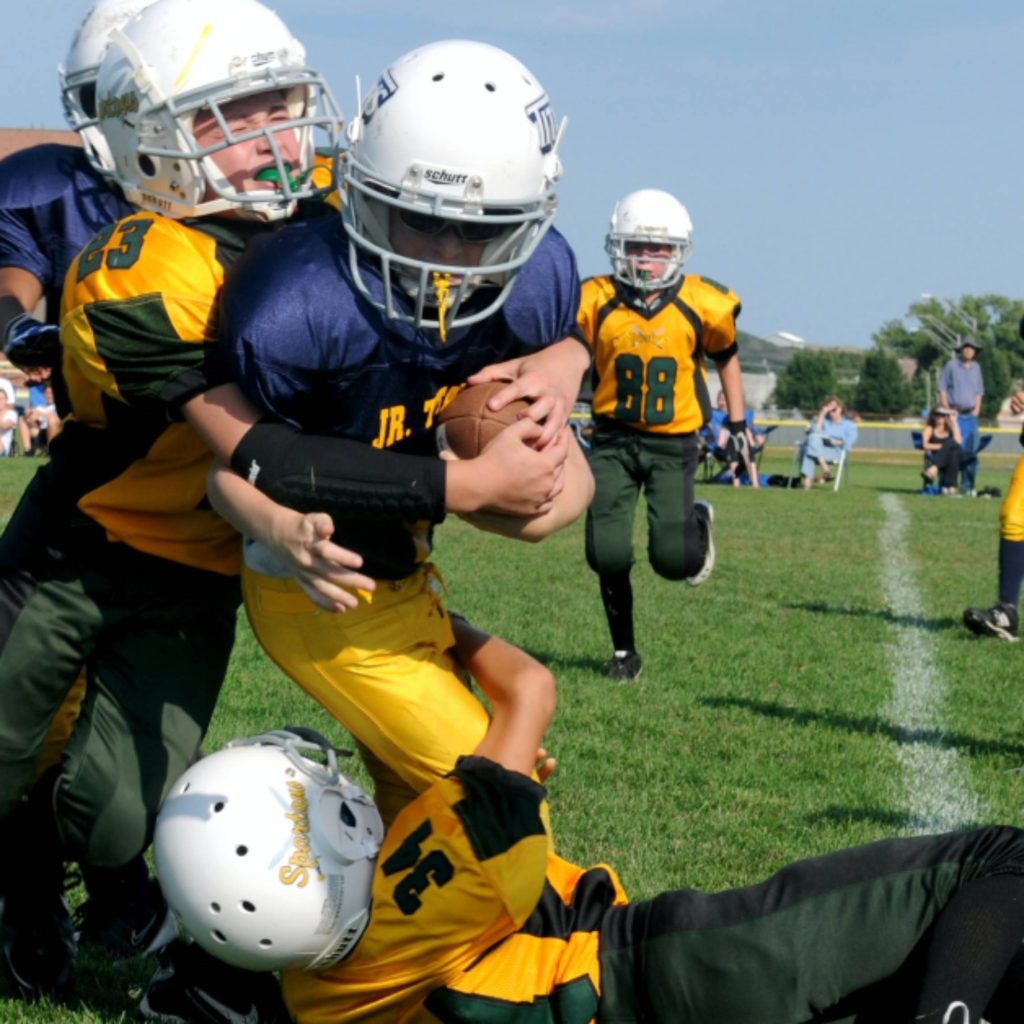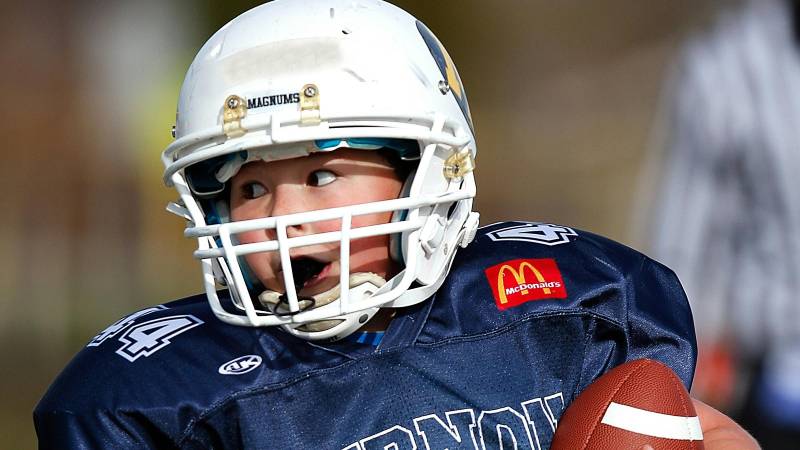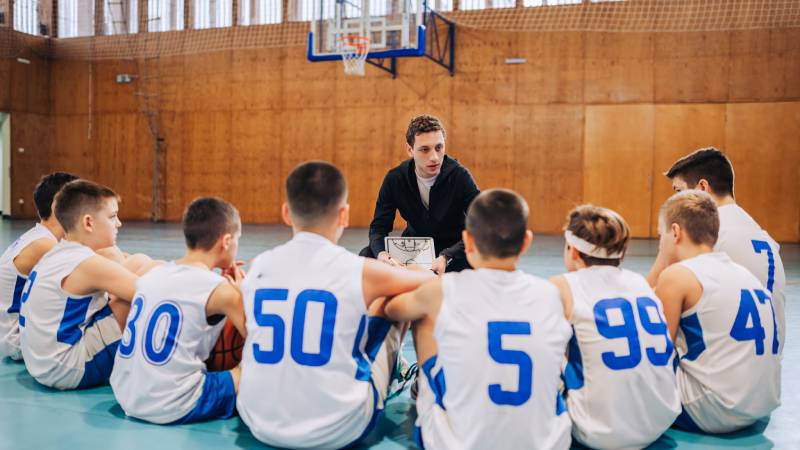Concussion: Symptoms to recognize and how to treat it

Of course, all sports carry a risk of injury. This is even truer when it comes to team sports. In fact, concussion is one of the most common sports injuries.
Alarmingly, 1 in 2 Canadians know little or nothing about concussions. Worse still, 1 in 4 Canadians knows nothing about concussion treatment procedures.
Every year, 20% to 40% of athletes suffer a concussion. So it’s a fairly common trauma for which people don’t have enough information. That’s why we feel it’s essential to provide you with the information you need to treat your child when he or she has suffered an impact to the head or body.
Description
Many people mistakenly believe that concussions are caused solely by an impact to the head. However, a blow to the body that jolts the head can also be the cause. It’s important to be very vigilant in such situations.
There are many different signs and symptoms of concussion that can affect those who suffer from it. It’s crucial to pay close attention, especially if your child has suffered a physical shock in the last few hours or days. This type of injury is not to be taken lightly, because without proper follow-up and treatment, the consequences could be more serious.
Concussion symptoms
- Headaches or feeling of pressure in the head
- Balance problems or dizziness
- Blurred or double vision
- Sensitivity to noise or light
- Feeling depressed
- Confusion
- Concentration or memory problems
- Nausea or vomiting
- Irritability
Treatment
To ensure effective follow-up and recovery, it’s important to know how to recognize a concussion, and above all, how to treat it. Here are a few steps to follow, which will undoubtedly optimize your child’s recovery.
Consult a doctor
The first step, of course, is to consult a healthcare professional. He or she will be able to assess your child and make recommendations based on the severity of his or her condition. You can visit your family doctor, but you can also see a doctor in the emergency room or at a walk-in clinic.
Seeing a chiropractor or physiotherapist is another interesting option. In many cases, they have undergone training in the tests to be carried out on patients with possible concussion. They will therefore be able to guide you with their recommendations, and refer you to another specialist if necessary.
Once a diagnosis has been made, you should inform your child’s school so that key people are aware of the situation. In this way, the coach can obtain the necessary information about the player and update his or her file.
Give priority to rest
Immediately after the injury, your child should limit physical and mental activities as much as possible. Continuing to play after suffering a violent blow during a practice or game could have serious repercussions.
Of course, your child can engage in calmer activities such as reading or drawing, as long as these do not exacerbate his symptoms. It’s also a good idea to get as much rest as possible for 1-2 days after the concussion.
Sleep also plays an important role in recovery. That’s why 8 to 10 hours of sleep are recommended. Of course, everyone is different, but in the majority of cases, concussion symptoms disappear within 14 to 21 days.
Eating well
Nutrition plays a key role when recovering from an injury. That’s why your child needs to eat a healthy, balanced diet. Giving the body the nutrients it needs promotes healing.
Hydration is also an important factor, as dehydration can lead to headaches, exacerbating some of the symptoms caused by concussion.
Limit screen time
You should be aware that the screens of electronic devices such as cell phones, computers and tablets, but also televisions, are likely to aggravate the symptoms of a concussion.
These devices emit light that can be dazzling and help stimulate the brain. For this reason, it’s best to limit their use, at least for the first few days, especially if your child experiences headaches, dizziness or nausea.
Gradual resumption of activities
Depending on your doctor’s recommendations, or those of a healthcare professional such as a physio or certified chiro, your child will gradually be able to resume his or her daily activities. After a few days’ rest, or even 1 week, your child can begin light activities such as walking. If his or her condition permits, he or she will be able to return to school with shorter days or a lighter workload to start with.
Generally speaking, about a week after the concussion and if the symptoms have practically disappeared, it will be possible to resume most daily activities, such as keeping regular school hours. However, he or she will not be able to resume sports or any other activity that could lead to another head injury. If symptoms reappear during a particular activity, your child will need to take a break and resume it later.
Regular activities can normally be resumed within a month of the concussion if symptoms have completely disappeared. When it comes to playing sports, your health care professional will be able to advise you on the best course of action. He or she will be able to provide you with recommendations so that your child’s coach can establish a progressive plan for a return to play.
Prevention
Of course, there’s no such thing as zero risk, and contact sports mean that players are more likely to sustain impacts that could lead to concussion. It should also be noted that people who have suffered a concussion are at greater risk of suffering another.
Certain preventive measures can help reduce the risks, but not eliminate them completely. For example, wearing the right safety equipment for your child’s sport, such as a well-fitting helmet or mouth guard.
In the past, and even today, the concussion rate following a head injury reported by field workers is much lower than the actual rate. This is due, among other things, to a lack of knowledge on the subject and poor recognition of symptoms. That’s why it’s important to remain vigilant if your child complains of symptoms that could indicate a concussion following participation in a practice or game.
Concussion recurrences
As mentioned above, people who have suffered a concussion are more likely to suffer another concussion in the future. This can be explained in two ways. Firstly, following a blow to the head, reaction times may be longer. Reflexes, for example, will no longer be the same, and there may be a reduction in attention span.
Secondly, a concussion causes chemical changes in the brain. This creates an imbalance and makes the brain more vulnerable to damage for up to a year after the incident. As a result, a mild impact could lead to another concussion.
You should therefore bear in mind that just because your child is symptom-free doesn’t mean he or she should systematically resume sporting activity. The absence of symptoms does not mean that the concussion has completely healed. In fact, the imbalance making the brain more vulnerable can persist for several months, even years in the most serious cases. As a result, premature return to sport increases the risk of recurrence.
Cognitive tests
There are various cognitive tests available to assess concussion. The SCAT5 test is one of them. This is a concussion assessment tool that takes into account balance, symptoms and other information about concussion-related injuries and conditions.
There’s also the Standardized Concussion Assessment Test, which is used to check an athlete’s orientation, immediate memory, concentration and delayed memory. This test is often used fairly soon after the incident to check the person’s immediate mental state.
There’s also the King-Devick test. This involves presenting different numbers on cards, which are read by the athlete. It assesses eye movements, attention and language, among other things, to identify possible deficits.
Pre-season testing can be very useful, as it enables athletes to be assessed before the start of the season and to obtain baseline measurements. If a concussion is suspected during the season, a new evaluation will be carried out. The new results can then be compared with pre-injury measurements. These tests may include those mentioned above, but also computerized tests, sports performance tests, etc.
Consequences
It’s important to understand that a premature return to play could have longer-term consequences. Returning to activity before the brain has fully healed increases the risk of suffering more serious brain damage.
In particular, unhealed concussions can lead to difficulties in concentrating on tasks that require attention, such as reading a book or watching television. They can also lead to balance problems and impaired judgment.
What’s more, suffering repeated concussions, even if they haven’t been diagnosed as concussions, increases the risk of eventually developing degenerative brain diseases such as dementia and Alzheimer’s disease.
Finally, considering that the brain undergoes a strong growth spurt during adolescence, athletes between the ages of 12 and 17 are at greater risk of long-term repercussions. This is because the region of the brain responsible for working memory is more fragile and more sensitive to the effects of concussion during this period.
Long-term concussion symptoms
- Concentration or memory problems
- Irritability
- Loss of balance
- Extreme fatigue
- Dementia
- Addictions
- Aggression
The nature of the after-effects depends, of course, not only on the severity of the shock and concussion, but also on the areas of the brain that have been affected.
It’s important to consult a doctor if you suspect your child has suffered a concussion. The doctor’s recommendations take precedence over the advice presented in this article.
Don't miss our new ultimate guide to concussion in sport!
Karl Demers

On the same subject
As a school principal, you can help keep your students safe by implementing 4 practices to limit cyberbullying.
Concussions, potentially serious brain injuries, have become a growing concern in a variety of areas, including sport and everyday activities. […]
Preventing concussions is crucial to protecting the health and well-being of athletes. Fortunately, several effective strategies can be […]


